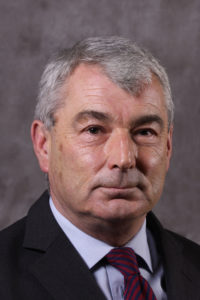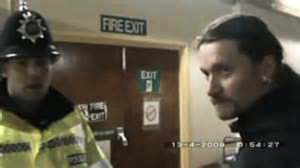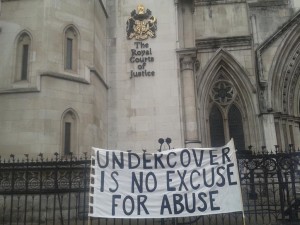 Last week a crucial battle in the undercover policing scandal saw unprecedented moments when the Inquiry chair labelled the Metropolitan Police incompetent and ill-prepared. Pitchford Watcher was in court and looks at what led to this and what it may mean for the future direction of the Inquiry.
Last week a crucial battle in the undercover policing scandal saw unprecedented moments when the Inquiry chair labelled the Metropolitan Police incompetent and ill-prepared. Pitchford Watcher was in court and looks at what led to this and what it may mean for the future direction of the Inquiry.
At the heart of the Pitchford Inquiry into Undercover Policing one issue towers above all: the release of the cover-names of the undercover officers who targeted protest movements.
For many involved there can be no truth or justice without answers – and for that they need to know who spied on them. Not necessarily who the cops are in real life, but the cover-names used by police posing as activists to infiltrate their campaigns, their friendships, their families and beds, who deceived and abused them. From the start, for the ‘Non Police, Non State Core Participants’ as the subjects of police spying are awkwardly termed, meeting this has been the primary pre-requisite for justice.
It is fair to say that the Metropolitan Police blanched at this demand. This sort of scrutiny of their dark arts is their worst nightmare, one they go extraordinary lengths to avoid. Over the last few decades they are known to have let large cases collapse rather than provide this disclosure.
It is no less true of the six-year civil case brought by women deceived into relationships. There, in a highly unusual move, the Met conceded and gave an unconditional apology. It effectively ended the case, just at the moment when the police were about to be forced to disclose. However, without answers, there was no closure for the women.
The women who fought that long battle do not give up so easily. Two of them, Helen Steel and Kate Wilson, spoke at last week’s hearing. It was their sometimes emotional (and rightfully so) submissions, that brought the damning statements from Pitchford. Though tetchy and constantly interrupting the pair, who were clearly frustrated with the police delays, he was unstinting in his own criticism of the police.
POLICE RESISTING ACCOUNTABILITY
To understand the significance of those comments, we need to take a step back and understand the lead-up to the issues facing the Inquiry. Since the Inquiry began in 2014 it has been dogged by problems, many of a legal nature. The police have constantly fought the release of any details, claiming the need to protect both undercover policing as a tactic and the welfare of undercover officers. It is an uphill battle as they are clearly defending the indefensible in this case. However, as the women in their court case discovered, the police are nothing if not tenacious, and are equally willing to spend large amount of taxpayers’ money to defend their reputation.
For some non-state/police core participants, it feels like a rugby match, each scrum a bruising push towards the final line. Though slowly advancing, each gain in the fight comes with personal costs in what is already a horrendous story. The interventions by Steel and Wilson last week attested to this. It was little surprise that every time the police promised co-operation, those in the public gallery laughed bitterly.
Though, what emerged is that the Inquiry is having its own direct experience of the police failing to meaningfully deliver, despite said promises.
Last year the Inquiry overruled police applications to have the Public Inquiry in private. Pitchford said cover-names would be released unless there was good reason not to. Where arguments to not release existed, these would be dealt via Restriction Orders – in turn evidenced with risk assessments setting out the dangers facing officers if cover and real names were revealed. Thus, risk assessments became pivotal to the process.
DELAYS UPON DELAYS
The first tranche of restriction order applications were due October 2016. Instead, what happened was a farce: friends of undercovers were chosen as risk assessors and had to be dropped; others fell by the way for different reasons. The Inquiry itself had to intervene heavily in the process, including providing specific guidance on what an acceptable risk assessment amounted to. In Pitchford’s words:
the Metropolitan Police were not the experts in risk assessment they claimed to be.
Pitchford has been clear that without the cover-names released the Inquiry cannot proceed. The suspicion in some quarters is that the Met are taking this as that is a guide on how to obstruct. Again, as the Chair told their barrister last week:
This process does not work if you take a year to give me a risk assessment.
For the normally highly restrained language of courts, all these are all harsh words, and damaging to the Metropolitan Police’s reputation. The Met had no real response either: the process had collapsed and needed rebuilding. The October 2016 deadline passed and a new one, the 31st March this year was put in place. At the Inquiry’s request, progress updates moved from monthly to fortnightly. Still, the March deadline was missed as the Metropolitan Police were unable to submit any risk assessments, and worse, applied for an extension until October 2017.
If Pitchford and the Inquiry team were frustrated, those spied upon were incensed. Not least as the Inquiry seemed to be accepting the for now familiar police stalling tactics. However, when Dan Squires, counsel for the non-police/state participants, raised that the police delays were deliberate, Pitchford was quick to step in and disapprove of the suggestion.
However, Pitchford perhaps underestimated, as the police had, the tenacity of those most affected. They were not having it, and were prepared to say so. Kate Wilson and Helen Steel stood up and reiterated the core demands: stop the delays and release the cover names.
Addressing court was clearly a painful experience for them, and frequent interruptions by a seemingly irascible Pitchford made it harder. They were talking from personal experience of having their lives invaded, but this was not simply an account of wrong doing: they had serious points to make about police behaviour.
Building on Squires’ points, they went further, demanding the Inquiry took a stronger grip of the situation and to stop leaving all the power in the hands of the police, the very people being charged with abuse. It was in the face of this that Pitchford’s clear irritation finally broke through. He acknowledged their distress, but again refuted the allegation that it was deliberate. However, this time he tempered it with his trenchant criticism levelled against the Metropolitan Police of incompetency, failure to plan and lack of foresight.
SELECTIVE SECURITY
The police tried a number of tactics, including pleading anxiety on behalf of some officers, and the claim of the need to protect operational secrets. Yet, they had no answer for the point that there had recently been a steady release of court cases and news stories where cover-names have been published as part of prosecution evidence. This included cases involving ISIS and serious organised crime. As Helen Steel remarked, it smelled more of a fight over reputation.
There is little doubt she was right. The Metropolitan Police had scored an own goal, seeking to protect its reputation on one front resulted in it being damaged overall. Pitchford for the most part gave them an easy ride, but when pushed it finally became clear that the Met had not just been given enough rope to hang themselves, but had put their neck into the noose.
Other police forces are clearly paying attention and looking at more nuanced approaches. For instance, the National Police Chiefs’ Council submitted that cover-names could be released if the real names were given automatic anonymity.
Just before the hearing it appears the Met realised the danger it faced. It would not be good if the new Commissioner was formally summoned to give explanation in person, as the Inquiry has the powers to do (a possible outcome of a Section 21 Order under the Inquiries Act). Thus, on the first day of the hearing they produced a much revised and more ambitious timetable. They went from complaining how difficult it would be to get anything in place before October, to promising the first tranche of 22 applications by 1st June, more by 1st August, and by 1st October all 150 affected SDS officers (undercovers and back-room alike) to be risk assessed, and where necessary restriction order applications submitted.
This is just the Special Demonstration Squad officers, and does not include the officers from the National Public Order Intelligence Unit, whose 50+ undercovers have apparently all indicated they want to make restriction orders. Nevertheless, where the Met goes, other forces are likely to follow.
The battle of the cover names has taken a big step forward, though is only half-completed. Pitchford has still to agree to this new timetable, then the police need to actually make the applications. There will then follow hearings to determine what will be restricted and what will be released, possibly using a system of benchmarks rulings to guide the police.
IT’S NOT GOING AWAY
The Inquiry was supposed to be completed by 2018. Now, evidence will not be heard until 2019, and as one barrister noted, at this rate the final report will not be submitted until 2022. That is eight years after it was first announced, eleven after Mark Kennedy, Jim Boyling, Bob Lambert and others were all first exposed. Few are surprised by this, after all Pitchford is relatively new to a fight that started four years before he became involved, and for some a cause spanning over two decades.
The spycops scandal continues to be a poison pill for the Metropolitan Police. Last week, it path walked them into a quandary over their reputation. Either they were incompetent and terrible at risk assessment; or they are not, in which case the delays have all been deliberate. It is clear there is a divide between those spied upon and the Inquiry who believes which.
One wonders how much it played a role in the recent sideways move for the man charged with heading up the Met’s response, Martin Hewitt. He has since moved sideways to head up Territorial Policing, with his role now occupied by Fiona Taylor.
Another open question is what incoming Commissioner Cressida Dick makes of it all. She has inherited a problem from her predecessor Bernard Hogan-Howe who took a somewhat belligerent approach to the issue. Yet, it was on her watch that the report that finally buried the Special Demonstration Squad was drawn up, labelling it a rogue unit without moral compass. However, she has her own skeletons and inconvenient connections into the spycops scandal, not the least being that the Special Demonstration Squad spied upon the de Menezes family justice campaign, a shooting she gave the go-ahead for. How much this will come back to haunt her remains unknown.
In the meantime, campaigners are waiting for the 1st June deadline to come around, in equal measures sceptical and hopeful that answers will finally start emerging.
The submissions made by all core participants and transcripts of the hearings of 5th & 6th April can be found at UCPI.org.uk.
The author attended the two hearings in person on 5th & 6th April.
Originally published on Pitchford Watcher.
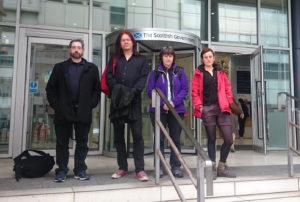

 People spied upon by Britiain’s political secret police in Scotland are boycotting the forthcoming Scottish review of the issue, saying ‘it cannot be trusted’ and branding it ‘pointless’.
People spied upon by Britiain’s political secret police in Scotland are boycotting the forthcoming Scottish review of the issue, saying ‘it cannot be trusted’ and branding it ‘pointless’.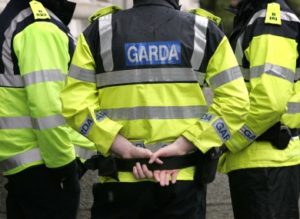 Shortly after the truth about undercover officer Mark Kennedy hit the headlines in January 2011, officials from many of the 11 countries he visited wanted answers. In Ireland, the Minister of Justice asked the police to write a report on his visits.
Shortly after the truth about undercover officer Mark Kennedy hit the headlines in January 2011, officials from many of the 11 countries he visited wanted answers. In Ireland, the Minister of Justice asked the police to write a report on his visits.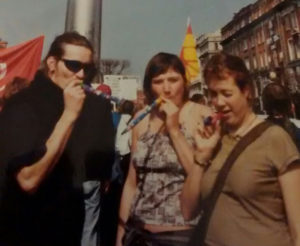
 Last week a crucial battle in the undercover policing scandal saw unprecedented moments when the Inquiry chair labelled the Metropolitan Police incompetent and ill-prepared.
Last week a crucial battle in the undercover policing scandal saw unprecedented moments when the Inquiry chair labelled the Metropolitan Police incompetent and ill-prepared. 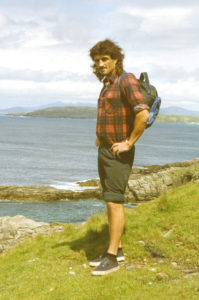
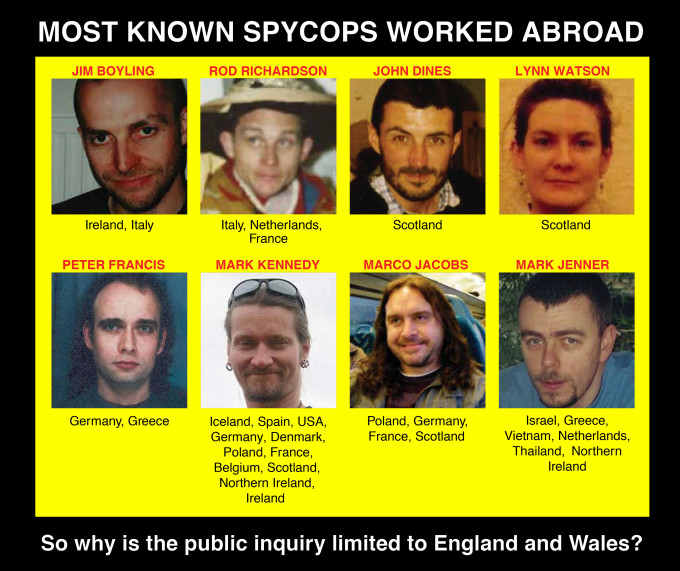 As children in school we are taught that the best way to organise a nation in the interest of its citizens is with a democratic system, and that this system can’t be flawed because of its checks and balances. Yet recently the Irish government has been proving that the opposite is true, it is operating to protect itself and its security apparatus against the best interests of the people.
As children in school we are taught that the best way to organise a nation in the interest of its citizens is with a democratic system, and that this system can’t be flawed because of its checks and balances. Yet recently the Irish government has been proving that the opposite is true, it is operating to protect itself and its security apparatus against the best interests of the people.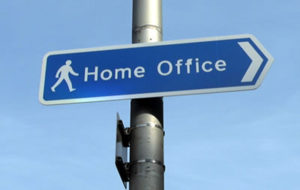 Few would have believed that anything like it happens in this country. Countless
Few would have believed that anything like it happens in this country. Countless  This post originaly appeared on the
This post originaly appeared on the 